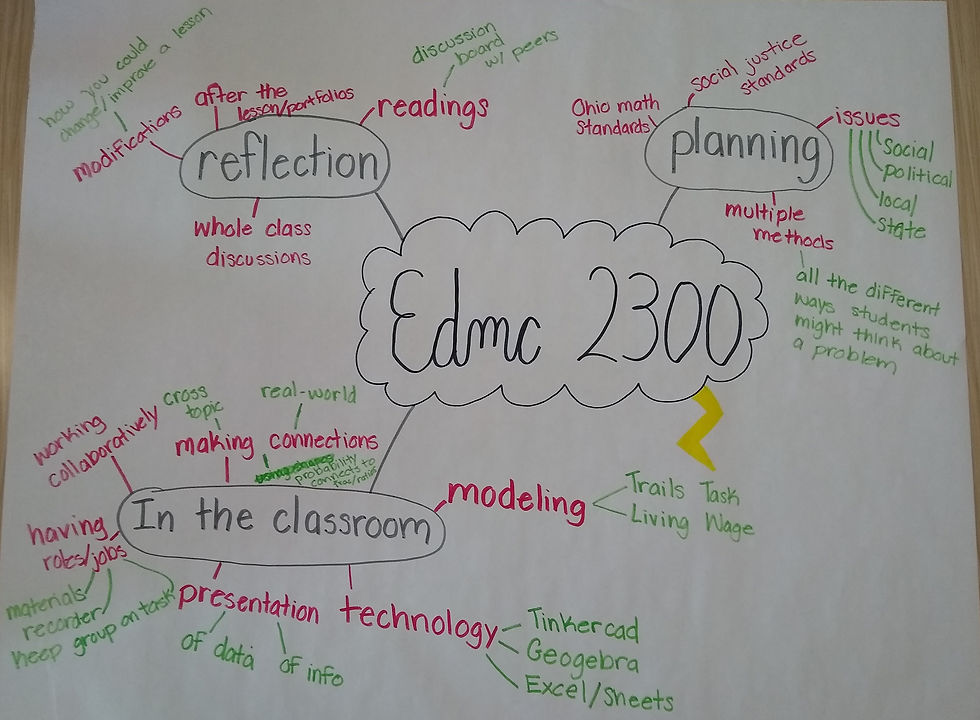Responding to Charlottesville in Math Methods
- Matt Felton-Koestler
- Aug 22, 2017
- 3 min read
Like many people I was pretty disturbed by the recent events in Charlottesville and the President's response. While I often engage current and future teachers in using mathematics to analyze social issues, including race (although more often class), I have never taken on something so immediate.
One reason is that it is often difficult to discuss these topics, especially when they are new and raw. Instead, many of my lessons tend to be less immediate. Perhaps sometimes they are too "clinical" and detached in nature—I often feel they fail to evoke the sense of outrage or shock that I feel about these issues.
A second reason I have not generally dealt with immediate current events is that I find it takes a lot of time to develop a mathematically-sound lesson. It's important to me that there's something that feels, to me, like hearty math at the heart of my lessons. I don't think I always succeed, but I try. I also recognize that focusing on "hearty math" is potentially problematic and likely to be contested:
What counts as hearty math?
Who gets to decide?
Why is hearty math more important than other approaches to these lessons?
There are real concerns around essentially asking "where's the math?" However, at the end of the day, in my courses for future teachers, I have to answer to my own sense of what constitutes a good lesson. I often find this means there's some level of compromise between what would make a good, solid math lesson and a nuanced, in-depth exploration of a topic.
How I'm Talking about Charlottesville in Math Methods
However, after reading some compelling material online, I decided I wanted to do something with Charlottesville this semester in my two math methods courses (K-3 and 4-9). And while part of me wanted to wait until later in the semester, when I knew my students better, I think I'm going to start the conversation on the first day (although after doing some getting to know you stuff and some "plain old fun math" first).
So here's my idea for a two day (week) lesson:
Day 1 starts with a discussion of the NCTM Response to Charlottesville, an overview of the differences between individual and institutional/structural racism, and a look at the public's views of race. Then the prospective teachers will read a few short pieces about responding to hate and creating a space to discuss issues in the classroom. Finally, I say that next time we'll look at one aspect of institutional racism in the U.S.: school segregation and have the teacher candidates fill out a KWL chart. Their homework includes more readings on these topics.
Day 2 starts with some (basic) background information on school segregation in the U.S. and then dives into a lesson looking at the racial makeup of several schools in Cincinnati.
An important point that I hope I'm able to highlight is that mathematics is good for some things (it's good, for instance, at analyzing survey results and comparing the racial composition of different schools), but by turning Charlottesville into a particular mathematical task something else is also lost and that we need to remain mindful of the nuance that is lost in that translation.
I'm Nervous
I'm nervous that students will say problematic things that will be hard to challenge or respond to in the moment. I'm nervous that I'll turn my students off in the first two weeks of class. I'm nervous that they'll be pissed (thank goodness for tenure, right—and a College that has been supportive of engaging students in difficult topics). I'm nervous that I'm not getting Charlottesville "right"—that I'm short changing it.
Acknowledgements
This lesson is mine, but it was informed by feedback from a number of great colleagues who often challenge my thinking, notably Drs. Koestler, Kahn, Hartman, and Harrison.
Short URL for this post: goo.gl/ENPp8X


Comments